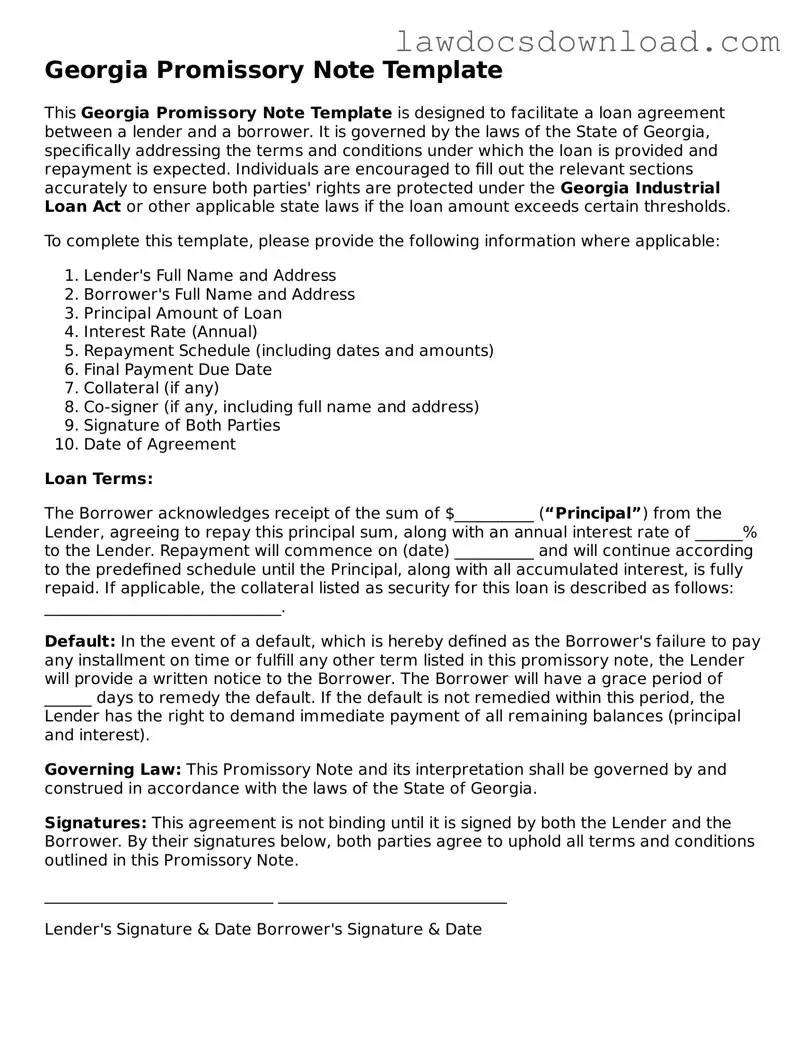Legal Georgia Promissory Note Form
A Georgia Promissory Note form serves as a legally binding document between two parties: the borrower and the lender. It outlines the amount of money loaned, the interest rate applied, and the repayment schedule to be followed. This document plays a crucial role in formalizing the loan process within the state of Georgia, ensuring clarity and legal protection for both involved parties.
Launch Promissory Note Editor Here

Legal Georgia Promissory Note Form
Launch Promissory Note Editor Here

Launch Promissory Note Editor Here
or
Free Promissory Note
Get this form done in minutes
Complete your Promissory Note online and download the final PDF.